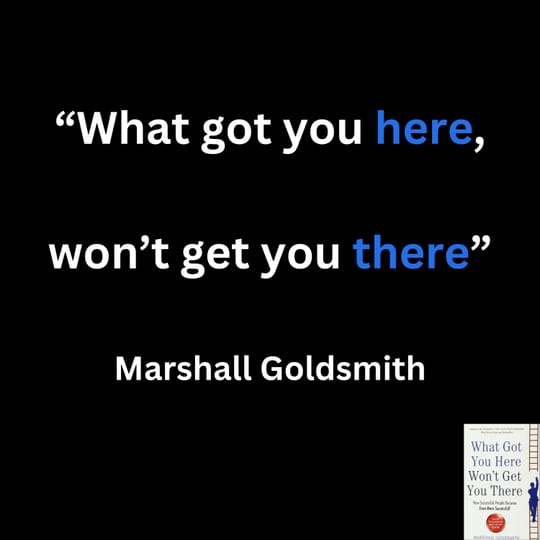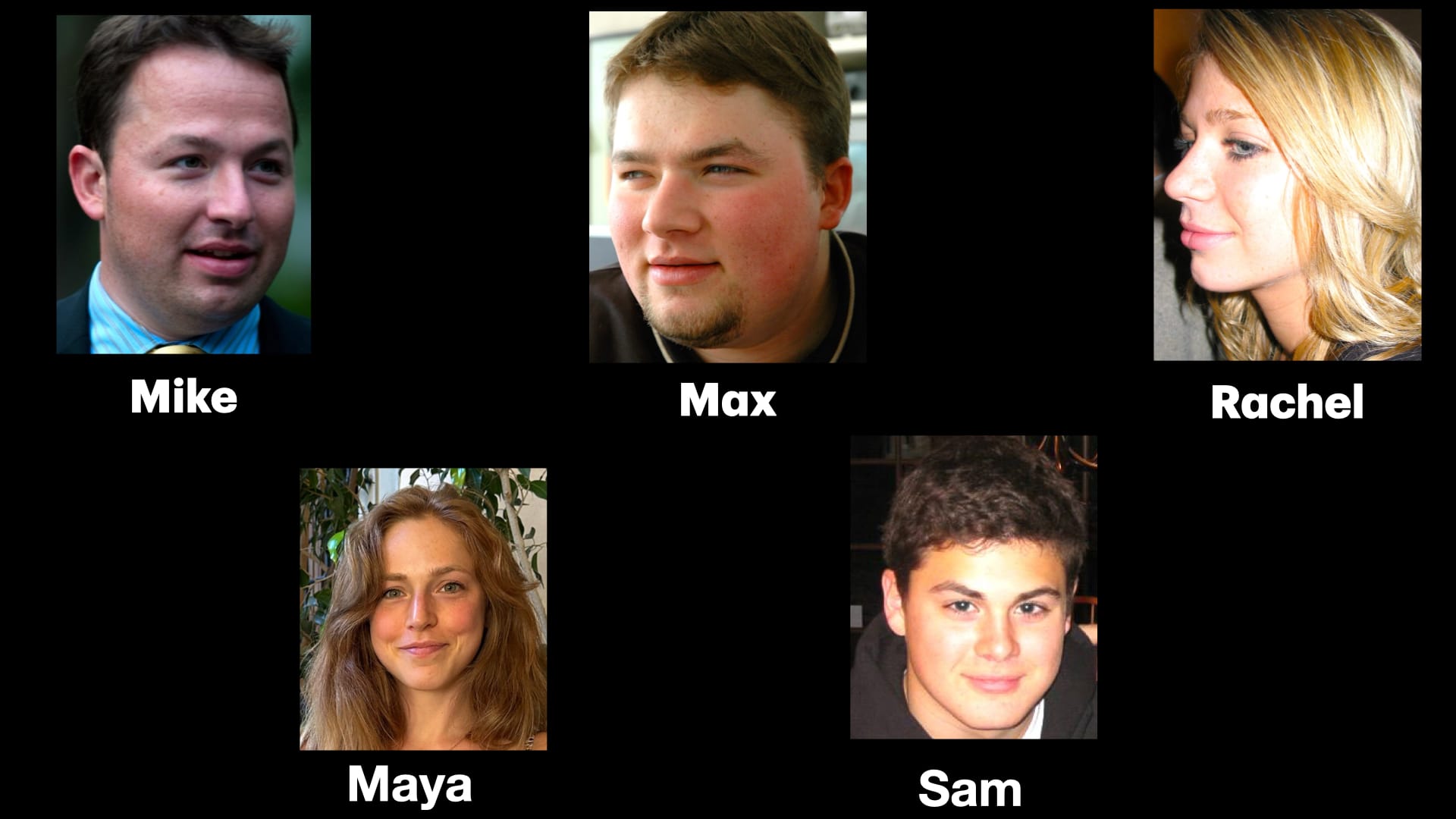
When I was the program director
of the general surgery training at the University of Minnesota, I was astounded by the fact that we had this crew of incredibly bright, energetic, and hard-working residents that we were responsible for sending out into the medical world, yet the focus of our education was pretty much on learning how to take care of patients and how to operate.
Of course, these are the critical foundations, but it really bugged me that we had these young adults essentially in the prison of residency and that we were missing a tremendous opportunity to teach them other skills, like the skills of leadership.
So I tapped into the fortuitous concatenations of my life and pieced together a leadership program with an outside leadership coach I found from the Four Seasons Hotels - Dennis Martodam. Dennis guided me and a group of residents through the program he designed, part of which was a 360 review.
When the results of my 360 were handed to me, I was delighted by the many positive written comments about my innovation, surgical skills, blah blah blah..., but then I hit the written comments under the section - What are this person's most significant areas for development and why? Here are a few of those comments (I know I have written about these before, but it is worth revisiting):
- Dr. Maddaus is very strong-willed and sometimes can bowl over colleagues who don't have as strong a presence as he does. Needs to take a deep breath and let others catch up. Needs to turn the intensity down around some of the more inexperienced residents as they sometimes find his energy and aggressiveness intimidating.
- Can bulldoze over other's concerns when he is passionate about a project and does not always seem open for criticism of his ideas.
- Can be dictatorial towards dissenting opinions that he does not share and can be perceived as egotistical by those who may not know him well.
- Working for change: When developing a course of action, work with other people to develop consensus rather than cajoling people to do something they do not believe in.
And then there was this lengthy doozy:
"Dr Maddaus is simultaneously harsh and largely unyielding unless one is in near-total agreement with him. Nevertheless, his overwhelming popularity is a testament to the potency of his personal strengths. Although his strong sense of self makes him courageous in many regards, I think his unshakable self-confidence (and sense of being 'right') often closes him off to other perspectives that are gentler or quieter than his own.
In some ways he seems almost ruthless in his pursuit to make us strong, leaving a trail of somewhat crushed personalities which I think he believes is good for us. The irony is that most of us would never complain b/c his approval, favor and attention is so meaningful. Moreover, most residents are desperate for leadership and guidance, so whatever the cost Dr Maddaus stands out as a role model of success, and we want his hand on us.
One peer put it perfectly; 'He's like an abusive boyfriend who you absolutely adore, but who you can never be sure won't slap you.' The biggest travesty is that I don't think Dr. Maddaus is aware of this at all. I do want Dr. Maddaus to know that in spite of the above opinions, I still think he is exceptional and I'm thankful he runs our program."
She was right. I was not aware of this at all.
And I was "ruthless" in my efforts to get them ready to face the hard demands and realities of being a surgeon. Of course, my urgency around this was clearly influenced by my difficult childhood combined with my surgical mindset.
But at the time the 360 was administered, I genuinely considered myself to be a patient, thoughtful person, and a good listener. It turns out I was not so great a listener - as evidenced by another comment:
"Dr. Maddaus is extremely good at seeking input and listening to others speak. However, it would be helpful if he could work on showing others that he takes their concerns seriously, both in his words (by acknowledging what the person has said and validating his/her points/feelings) and in his actions."
At the time, I blew all these comments off since there were so many other positive ones, and frankly, I was trying to get a lot done and changed, so I figured there was bound to be some (it pains me to write this☹️) - collateral damage.
So after getting my ass handed to me with a 3-month rehab stint for prescription narcotic addiction, I'm sitting at my desk one night, and I remember the 360 and pull it out, and when I read the abusive boyfriend comment, it was as Leonard Cohen sings in the song Anthem - the crack that let the light in.
Now I wondered, with curiosity - what if the abusive boyfriend thing was really true and not just the moaning of some resident who lacked the "right stuff."
So, I sent the abusive boyfriend sentence to 5 of my kids by email to see what they thought.

Mike: The slap sentence is perfect - you were essentially unapproachable.
Max: I couldn’t tell you anything - all I would hear is buck up, move past it, this is nothing.
Rachel: I hate to say this, but yes - you were rigid, unapproachable, closed-minded; you lacked empathy, and you had a narrow definition of how life should be lived, and perfection was the only option.
Maya: Yeah, that was your dictator phase.
Sam (the introvert): Yep.
OUCH!
There are 2 lessons or principles to glean from my experience:
- It's a perfect example of Anais Nin's observation: "we don't see the world or others as we are, we see them as we are." It is exactly what Andrew Bustamante said in the video from my last post on Perception vs Perspective: "My perception is that I'm sitting in the center seat and you're sitting outside of me and everything else is built around me at the center."
It's like each of us is at the center of our own little universe, with everyone else moving around outside of us, as if each of us is the sun, and everyone else is planets, meteors, moons, or space debris.
Because of our perception of being at the center of the universe and because we cannot see our faces or hear our words as others hear them, we do not have any outside perspective on how we are or come across. How we think, react, and behave feels "normal" because we all live in our own trance of our normal.
This is classic blind spot stuff, and we all have this blind spot in some form or another. Want to shine a light on your blind spot? Pick up a copy of Thanks for the Feedback and read Chapter 4 - See Your Blind Spots: Discover How You Come Across. (Don't want to buy the book? I have attached my non perfectly formatted notes on chapter 4 below.) - It highlights a second critical principle from Marshall Goldsmith, the highest-ranked executive coach and leadership thinker in the world:
"What got you here, won't get you there."
Meaning that the skills and drive that got me here - to being a full professor, endowed chair, program director of general surgical training, the clinical and operative skills - all of it - are not the skills that would get me there - to the next critical stage of leadership behavior and success, whether at home or work - and that’s the ability to get out of the prison and trance of my perceptions and to learn how to see another person's perspective, to see and believe in others, and to connect with them as human beings.
The ability to get out of the prison of my personal self-trance and learn to see and understand another person's perspective is a broad skill supported by a layer of specific skills that can be learned and practiced.
It is exactly like operating. The broad skill is being able to conduct an operation. But there is a layer of individual and specific skills - e.g., how to suture, hold a needle driver, insert the ports, etc - that are the foundation of being able to conduct an operation beautifully.
The skills of being able to genuinely understand another's perspective by seeing and believing in them without judgment are the foundation of everyday leadership at home and at work because when people feel seen and believed in by you, they care about you and the mission. And one of a leader's biggest jobs is to get people to care.
When someone cares, they are more accountable, more motivated, more creative, and more engaged. Plus, it feels great.
More to come on the specific skills!
Feedback with a thumbs up or down is greatly appreciated, or drop an email to me michael@michaelmaddaus.com.
